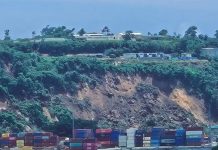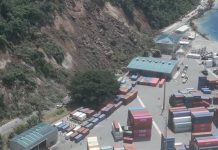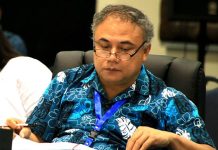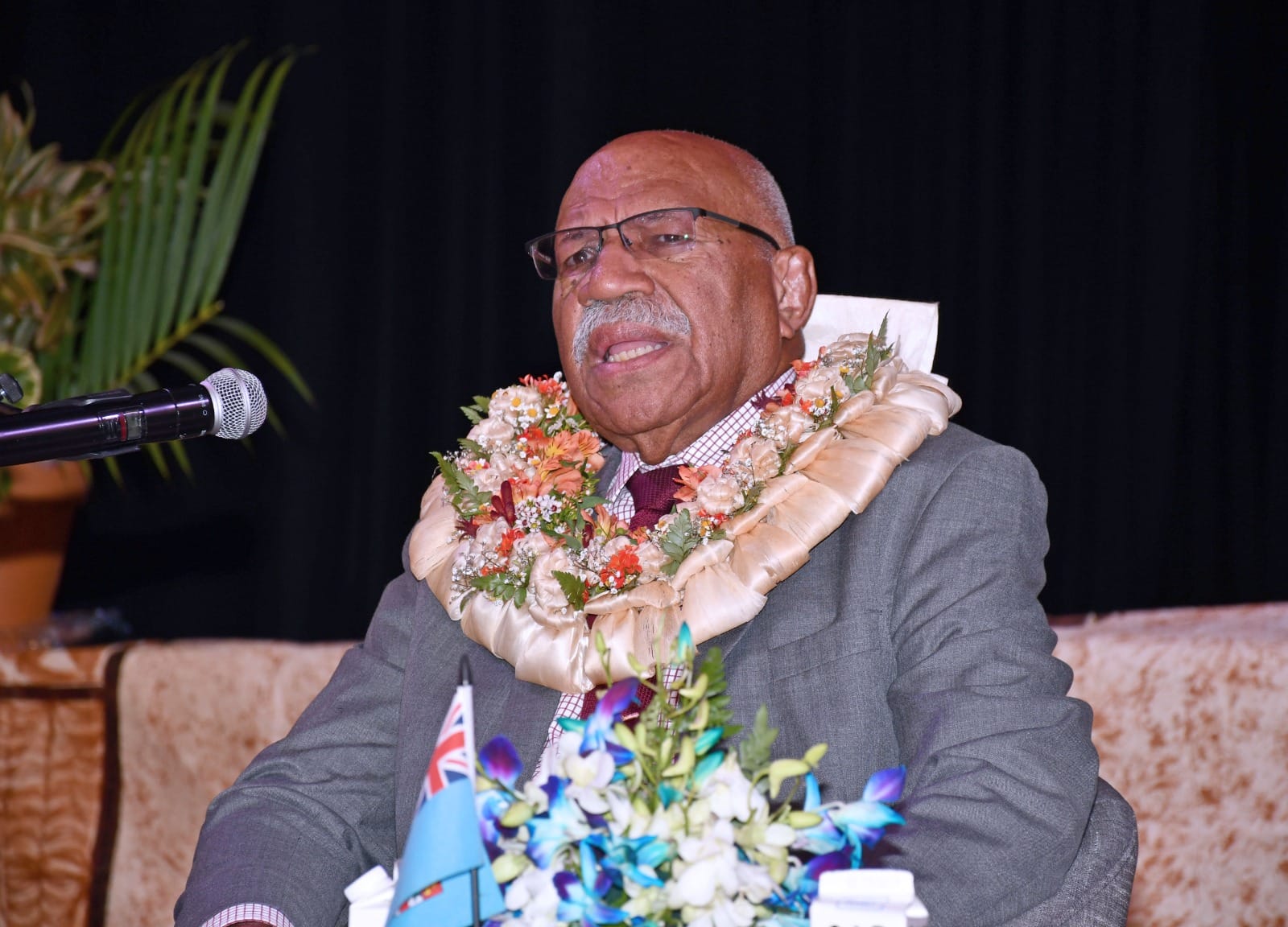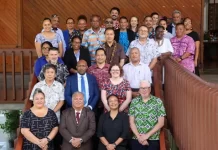Fiji’s Prime Minister Sitiveni Rabuka has expressed alarm over the “intensifying” rivalry between the United States and China and risk to global peace, warning that the Pacific doesn’t want to be forced to choose between the two superpowers.
Visiting Canberra this week for talks with Anthony Albanese, Rabuka pledged to make the Pacific an “Ocean of Peace”, saying a region that collectively occupies 32 million square kilometres – bigger than the combined land areas of the U.S, China and Russia – had a right to be heard and recognised.
And while he did not name Solomon Islands’ security agreement with China, Rabuka said the hallmarks of such a peace zone would include “refraining from actions that may jeopardise regional order and stability”.
“Like the rest of humanity, and like you in Australia, the people of our ocean are aware the planet might be on the edge of something terrible,” Rabuka told a Lowy Institute event at Old Parliament House on Tuesday night.
Rabuka, who returned to power after winning the Fijian election last year, will meet Albanese on Wednesday for talks in Canberra.
He spoke to Foreign Minister Penny Wong on Tuesday, who thanked Rabuka for helping Australian citizens leave Israel on a Fiji Airways evacuation flight.
Under Rabuka, Fiji has edged away slightly from Beijing, although in his speech he said Fiji had enjoyed good relations with China for nearly 48 years and its aid programmes were “valuable and appreciated”.
“The Chinese presence is felt throughout the region,” he said.
Rabuka said U.S and China rivalry was very evident in the Pacific “but it does not have that raw edge visible elsewhere”.
“Rivalry between the two most powerful nations, the U.S and China, looks to be intensifying,” he said.
“There are dangerous confrontations between Chinese and Filipino ships in the South China Sea. Will this bring the U.S into an encounter with China?
“Tensions over Taiwan are escalating with the potential for an armed face-off, or worse. Again, the main adversaries would likely be those behemoths, China and the America.
“Fiji’s position is clear. We are friendly with China and the U.S and do not want to be caught in the struggle between the superpowers.”
Rabuka said Fiji valued the increased engagement by the U.S with the Pacific, including support for action on climate change and illegal fishing.
“There was a feeling though that Washington, to a certain extent, was leaving it to Australia to represent the democracies in Fiji and the other island states,” he said.
Rabuka said Australia and Fiji were today “close friends” but pointed out how Canberra’s move to isolate Fiji in 2006 after a military coup had been detrimental.
“I made the point [in a 2013 article] that other powers would always replace those who no longer wished to be involved in defence co-operation with coup-makers. That’s what had happened,” Rabuka said.
“I noted the Chinese then were positioning themselves in the Pacific in line with the principles of the great strategist Sun Tzu. They’ve had much success in that initiative.”
Rabuka said he would introduce a motion at next month’s Pacific Islands Forum meeting in the Cook Islands, which Albanese will attend, seeking endorsement for his Ocean of Peace initiative.
He flagged it could mean Fijian peacekeepers were deployed to Papua New Guinea to manage tribal conflicts, or try to reach common ground with Indonesia over West Papua.
“Briefly I envisage basic foundations built on refraining from actions that may jeopardise regional order and stability, and maintaining respect for each other’s sovereignty and territorial integrity,” he said.
“Protection and conservation of the environment would be central – a positive element for more harmony and peace.”
Rabuka noted the irony of him becoming an “apostle for peace” after he initially seized power in 1987 in a military coup, earning the nickname Rambo.
“I have repented; I am reborn. My past cannot be removed, but I can compensate to some extent for what I did,” he said.
SOURCE: AFR/PACNEWS



